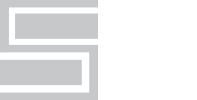Corian® is the original solid surface material launched in 1965 by DuPont™. It is an advanced composite of natural minerals (aluminium-tri-hydrate, 55%), acrylic (MMA, 40%) and color pigment (5%) developed as a practical material for everyday use.
2. What are the characteristics of Corian®?
Corian® sheets can be combined with adhesives to make the joints inconspicuous. For durability, stains can be easily removed by cleanser, and scratches can be repaired without marks.
3. How does Corian® comply with environmental standards?
DuPont™ Corian® solid surfaces and joint adhesive are all very low in VOC (volatile organic compound) content, which complies with the standards of GREENGUARD; non-toxic, all colors of Corian® fulfil the requirement of the National Sanitation Foundation (NSF) Standard 51, proving that Corian® is safe for direct food contact, and is an ideal surface for food preparation.
4. What are the differences between Corian® and other brands in solid surface materials?
The main difference is chemical composition. Corian® consists of natural ore powder and acrylic polymer. The solid surfaces from other brands consists of POLYESTER.
5. How do we clean Corian®?
For most dirt and residue, use soap water or ammonia based cleaner, rinse and wipe dry. For difficult residue, spray with Deep Cleaner and wait for about 30 seconds for cleaner to work. Wipe dry with a paper towel.
6. What are the differences between Corian® sinks and stainless steel sinks?
Corian® sinks and stainless steel sinks are both very durable, but Corian® is reparable and scratches can be repaired aesthetically without marks.
7. Is Corian® resistant to acid and alkali?
In most cases Corian® can be repaired if accidentally damaged. However, avoid exposing Corian® to strong chemicals, such as paint removers, oven cleaners, etc. which can create permanent damage.
8. What are the differences between Corian® and marble?
Corian® is aesthetic, malleable, reparable and seamless bonding. Although marble is a type of very hard rock and durable, it cannot be repaired without noticeable marks. Moreover, seamed bonding shows visible joints & sealant, scratches / chips trap dirt, germs and acids as a result of poor hygiene.
9. How to prevent heat damage?
Corian® is an excellent material for heat resistance. As with all countertop materials, it is important to minimize direct heat exposure to protect your surface and investment. We recommend using heat trivets or hot pads when placing hot objects on any surface. Allow cookware to cool before placing them into a Corian® sink or on surface tops.
10. Is Corian® suitable for outdoor applications?
Corian® contains methacrylic acid that is UV-resistant, which makes it an ideal material for outdoor furniture and exterior wall cladding, etc.

